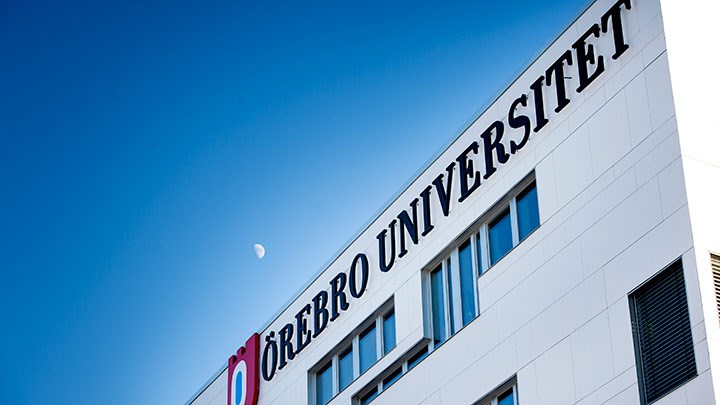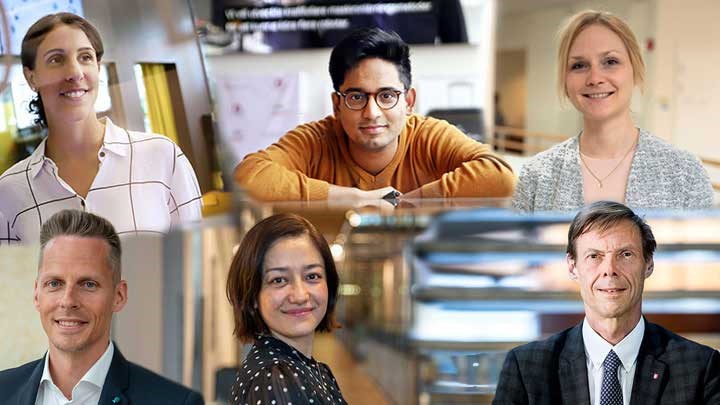Doctoral students in Computer Science, Cybersecurity and Embodied AI
Ref no: ORU 2.1.1-03068/2025
Örebro University and the School of Science and Technology are looking for two doctoral students for the doctoral programme in Computer Science, concluding with a doctoral degree.
Start date: Fall 2025.
Project description
The PhD students will be affiliated with the Department of Computer Science and will carry on research within the field of cybersecurity for embodied AI.
While cybersecurity threats in AI are often studied in software-based environments, the physical embodiment of AI in robots and autonomous systems introduces new, largely unexplored risks and opportunities. This PhD project will investigate:
- How embodiment and physical configuration affect the cybersecurity posture of AI-driven systems;
- The role of self-awareness in security, i.e., how robots can assess their own vulnerabilities based on their embodiment and operational state;
- How dynamic reconfiguration can enhance resilience, e.g., redistributing sensor reliance, modifying behaviour or adjusting control strategies in response to attacks.
Rather than relying solely on traditional security mechanisms, this research aims to explore how AI systems can proactively evaluate their own weak points and autonomously adapt to mitigate security risks.
The PhD students will belong to the graduate school within the Wallenberg AI, Autonomous Systems and Software Program (WASP). WASP is Sweden’s largest individual research program ever, a major national initiative for strategically motivated basic research, education and faculty recruitment. The program addresses research on artificial intelligence and autonomous systems acting in collaboration with humans, adapting to their environment through sensors, information and knowledge, and forming intelligent systems-of-systems. The vision of WASP is excellent research and competence in artificial intelligence, autonomous systems and software for the benefit of Swedish society and industry. Read more: https://wasp-sweden.org/
The programme and the doctoral studentship
The doctoral programme consists of courses and an independent research project that you will present in a doctoral thesis. The programme concludes with a doctoral degree and comprises 240 credits, which corresponds to four years of full-time study.
Our ambition is for your doctoral studies to be stimulating and purposeful throughout the programme until you have obtained your doctoral degree. A thorough introduction will therefore get you off to a good start and provide a solid foundation on which you can build your studies. As a doctoral student at Örebro University, you will be offered a specially tailored seminar series, covering matters ranging from doctoral programme rules and careers to support during the study period and networking.
The graduate school within WASP is dedicated to provide the skills needed to analyze, develop, and contribute to the interdisciplinary area of artificial intelligence, autonomous systems and software. Through an ambitious program with research visits, partner universities, and visiting lecturers, the graduate school actively supports forming a strong multi-disciplinary and international professional network between PhD-students, researchers and industry.
The place on the programme is linked to a full-time doctoral studentship for the duration of the study programme, which corresponds to four years of full-time study. More information on doctoral studentships, part-time studies and part-time doctoral studentships can be found in the Regulations Handbook. The initial salary for a doctoral studentship is SEK 31,300 a month.
Entry requirements and selection
For admission to doctoral studies, applicants are required to meet both general entry requirements and specific entry requirements. In addition, applicants must be considered in other respects to have the ability required to benefit from the programme. For a full account of the entry requirements, refer to the admissions regulations as well as to annex 2 to the general syllabus for Computer Science.
Applicants meet the general entry requirements if they
- have been awarded a second-cycle qualification,
- have satisfied the requirements for courses comprising at least 240 credits, of which at least 60 credits were awarded in the second-cycle, or
- have acquired substantially equivalent knowledge in some other way in Sweden or abroad.
Applicants meet the specific entry requirements for doctoral studies in Computer Science if they have been awarded a Degree of Master of Science in Engineering or a one-year Master’s degree from a programme within the subject field or related subjects, or if he or she has received a passing grade of at least 120 credits, including an independent project of at least 15 credits, in a main field of study of relevance to the computer science field. At least 30 credits of the 120 credits must have been awarded in the second cycle. A person who has acquired substantially corresponding knowledge, in Sweden or abroad, also meets the specific entry requirements.
A successful applicant should:
- Have a strong background in cybersecurity, with knowledge of system security, network security, or AI/ML security;
- Have a passion for cybersecurity research in advanced and futuristic topics, as well as for interdisciplinary work at the intersection of AI, robotics, and cybersecurity.
Familiarity with autonomous systems, AI/ML-driven decision-making, and experience with robotics frameworks (e.g., ROS) and/or embedded systems security are valuable assets, but not strict requirements.
Information
For more information about the programme and the doctoral studentship, contact Alberto Giaretta (alberto.giaretta@oru.se). For administration issues, contact Martin Magnusson (martin.magnusson@oru.se).
At Örebro University, we expect each member of staff to be open to development and change; take responsibility for their work and performance; demonstrate a keen interest in collaboration and contribute to development; as well as to show respect for others by adopting a constructive and professional approach.
Örebro University actively pursues equal opportunities and gender equality as well as a work environment characterised by openness, trust and respect. We value the qualities that diversity adds to our operations.
Application to the programme and for the doctoral studentship
The application is made online. Click the button “Apply” to begin the application procedure.
For the application to be complete, the following electronic documents must be included:
- CV
- Proof that you meet the general and specific entry requirements (e.g. copies of the original certificate and official transcript for bachelor's and master's degree)
- Independent project (degree project)
- Other relevant documents, course and degree certificates verifying eligibility
- Description of research interests – detailing the field of research you are interested in, including, if applicable, theoretical and methodological approaches (2-5 pages).
As a main rule, application documents and attachments are to be written in Swedish, Danish, Norwegian, or English. Certificates and documents in other languages verifying your qualifications and experience must be translated by an authorised translator to Swedish or English. A list of authorised translators can be obtained from Kammarkollegiet (the Legal, Financial and Administrative Services Agency), www.kammarkollegiet.se/engelska/start.
When you apply for admission, you automatically also apply for a doctoral studentship.
More information for applicants will be found on our career site: https://www.oru.se/english/career/available-positions/applicants-and-external-experts/
The application deadline is July 31st, 2025. We look forward to receiving your application!
As we have already made our choices in terms of external collaboration partners and marketing efforts for this recruitment process, we decline any contact with recruitment agencies and advertisers.
As directed by the National Archives of Sweden (Riksarkivet), we are required to deposit one file copy of the application documents, excluding publications, for a period of two years after the appointment decision has gained legal force.




